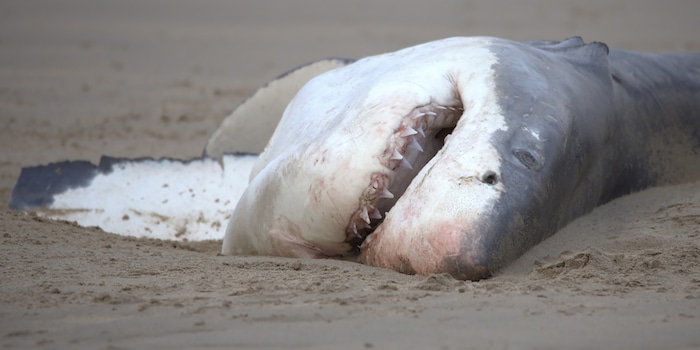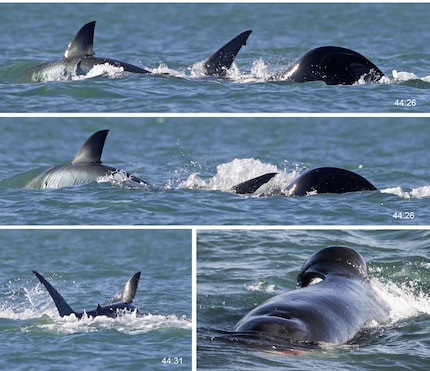
The great white shark was eaten in two minutes
South Africa's coast no longer offers white sharks a safe harbour. Killer whale "Starboard" even kills the predatory fish alone and thoroughly.
Since 2017, a new predator has been reigning supreme off the South African coast at the top of the oceanic food chain: white sharks are no longer at the top of the hunt, but killer whales - in particular a duo called "Starboard" and "Port" hunt the predatory fish, which often die or flee when the marine mammals appear. But even when the orcas are alone, they can successfully hunt white sharks, as observations off the coast of Mossel Bay document: Alison Towner from Rhodes University and her team witnessed how "Starboard" overpowered a shark in a matter of seconds and partially devoured it in less than two minutes.
Marvellous whales usually hunt in pairs or smaller groups to take down larger prey such as sea lions, sharks or whales. They can then encircle their victims and weaken them with targeted attacks, so that even large marine mammals such as blue whales can be killed. Attacks by individual orcas on marine mammals were known, but not on dangerous and manoeuvrable apex predators such as white sharks.
However, "Starboard" also managed to do this: During an observation trip off the South African coast, Towner and Co, saw how the male orca killed a 2.5-metre-long young white shark and then, after a short time, passed by their ship with the fish's liver: the organ is very rich in fat and oil and is the preferred target of attacks - dead sharks regularly drift onto the coast with their bellies torn open and their livers missing. A second fresh carcass of a great white shark more than 3.5 metres long was also floating in the water near the first victim.

Source: © Christiaan Stopforth, Drone Fanatics SA CC-BY (Ausschnitt)
The hunt for sharks has various consequences: There is a lucrative shark tourism industry in South Africa, where observers can see the predatory fish up close in bite-proof cages in the sea. The killing of the animals and the escape of numerous other specimens, some of which do not return to their territories for weeks, jeopardises this line of business. And the ecosystem can also change: "The displacement of various shark species by the killer whales could benefit smaller predators that were kept in check by the sharks. This may trigger changes to the entire food chain in the marine ecosystem," says Towner.
Spectrum of Science
We are partners of Spektrum der Wissenschaft and want to make well-founded information more accessible to you. Follow Spektrum der Wissenschaft if you like the articles.
Originalartikel auf Spektrum.de
Titelbild: © Christiaan Stopforth, Drone Fanatics SA CC-BY (Ausschnitt) In Südafrika findet man Weisse Haie inzwischen fast so oft tot am Strand wie lebend im Wasser.
Experts from science and research report on the latest findings in their fields – competent, authentic and comprehensible.
From the latest iPhone to the return of 80s fashion. The editorial team will help you make sense of it all.
Show all